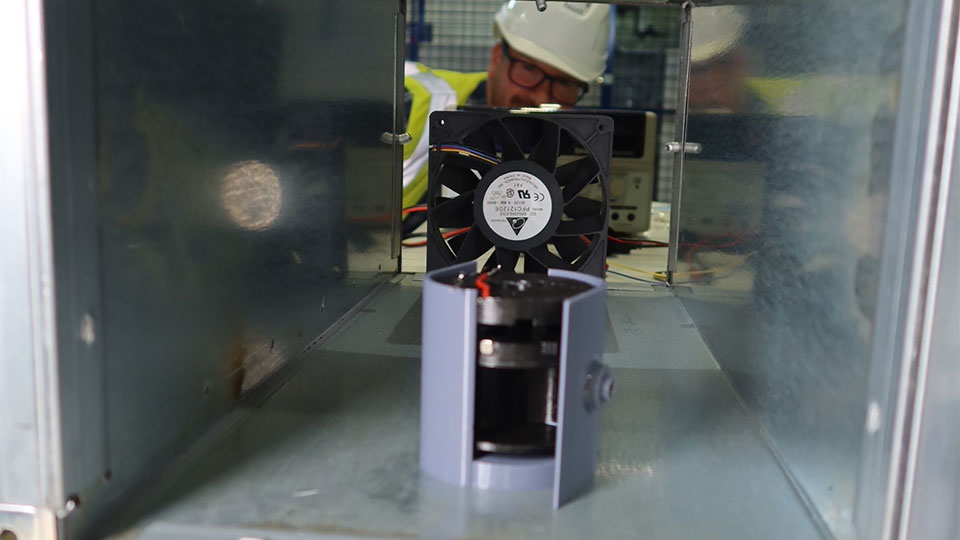Collaborating with the National Nuclear Laboratory (NNL) in a feasibility study funded by Game Changers, the University has introduced an innovative self-powered wireless sensing technology.
The Game Changers initiative is an innovation programme that addresses complex challenges within the nuclear industry. The initiative's collaborative efforts span organisations of all sizes and sectors, focusing on identifying and developing the most promising technologies.
In response to a challenge presented by Sellafield, Loughborough University and the NNL have successfully engineered a wireless sensor node based on Loughborough's pre-existing solutions.
This node can monitor temperature, humidity, salt levels, airflow, and corrosion. Additionally, it can detect changes in the thickness of air ducts, providing an early indication of potential degradation or corrosion. This innovation is powered by a miniaturised wind turbine-based energy harvester—a technology crafted by Loughborough academics for this specific application.
This technological breakthrough effectively addresses critical challenges in air duct monitoring, including the need for compact deployment within ducts, wireless feedback capability, and the ability to self-power for over 20 years.
Expressing his enthusiasm for this accomplishment, Professor Stephanos Theodossiades, an expert in Dynamics from the Wolfson School of Mechanical, Electrical, and Manufacturing Engineering at Loughborough, stated, "We were delighted to contribute to this challenge with our expertise in self-powered sensing node design. There is a vast potential for self-powered sensing to provide robust solutions in various industry sectors and environments, empowering IoT Digital Twins, structural health monitoring, and predictive maintenance."
The research aligns with the School's ambition to contribute to UK energy security, fostering a sustainable and resilient future in harmony with our University Strategy, Creating Better Futures. Together. It emphasises the importance of intensifying our research and innovation activities to continue to deliver transformative impact in society.
An announcement regarding further funding for the project's next stage is expected soon.
